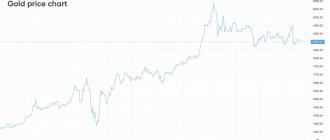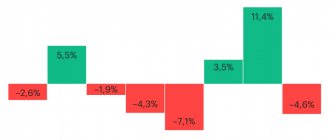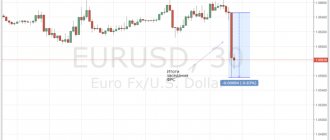The head of the European Central Bank, Mario Draghi, held a press conference following a meeting of the board of governors in Frankfurt am Main.
As Vesti.Ekonomika reported, the ECB left the interest rate on loans at zero, the rate on deposits at minus 0.4% per annum, and the rate on margin loans at 0.25% per annum. The Central Bank reiterated that it intends to keep key rates at their current levels at least until the end of summer 2019.
The regulator also confirmed that net asset purchases will cease by the end of December.
Text broadcast
Draghi: The incoming information, although somewhat weaker than expected, is generally consistent with continued broad growth in the eurozone economy and a gradual increase in inflationary pressures.
Draghi: Our monetary policy measures continue to support domestic demand, with private consumption boosted by continued growth in employment and wages.
Draghi: Risks to the eurozone's growth prospects can still be assessed as broadly balanced, while risks associated with protectionism, emerging market vulnerabilities and financial market volatility remain prominent.
Draghi: Based on current oil futures prices, annual inflation is likely to hover around current levels in the coming months.
Draghi: A sufficient degree of monetary stimulus is still needed to keep inflation on a steady path to below but close to 2% over the medium term.
The head of the ECB ends his speech with a traditional call for eurozone governments to “substantially step up” the implementation of structural reforms. Eurozone states must improve their long-term growth potential, he added.
Draghi: Yes, economic momentum has weakened, yes, poll results are worse, but is this enough to change the baseline forecast? The answer is no.
Draghi: The disagreements between the Italian government and the European Commission relate to fiscal issues, so they were not given much attention at the Governing Council meeting.
The head of the ECB expressed confidence that an agreement between Italy and the European Commission on the country's budget will be reached.
Draghi: Weakness in Italian government bonds could hurt the country's banks.
Related links
- The ECB kept key interest rates at the same levels
- Inflation in the eurozone accelerated in September amid rising energy prices
- The European Commission demanded that Italy revise the draft budget for 2021
According to the head of the ECB, until now the impact of the situation in Italy on other countries has been limited.
Draghi: the ECB has no reason to doubt its inflation forecast.
Asked what the ECB would do if financial markets continued to fall, economic data deteriorated or if tensions between Italy and the EU worsened further, Draghi said the central bank still had tools it could use.
Draghi said two speakers at this week's Governing Council meeting mentioned the TLTRO program, which provides low-cost financing to eurozone banks.
In response to a question about the pressure from politicians on the ECB and the US Federal Reserve, Draghi told reporters that such pressure threatens independence, Draghi emphasized.
Draghi: a 'good, sensible' Brexit solution will reduce risks to financial stability.
Draghi: If the necessary decisions are not made in the Brexit negotiations as the UK's exit date approaches, the private sector will have to prepare for a “hard” Brexit... I would not call this a big risk for financial stability, but it is a source of concern.
The broadcast has ended.
Analytics Sniper May 11. We follow the performance of Mario Draghi
Hello, dear friends!
Yesterday was quite volatile, the economic calendar on Thursday was full of strong news, so this was expected. The focus was on the GBPUSD pair; yesterday, against the backdrop of the Bank of England’s poor comments about the UK economy, we could see the British currency fall below the level of 1.3500. Then, not the best data came out for the US, and the major pairs experienced a rebound.
In relation to the dollar, large players began to think that the fourth rate increase this year may not take place. The reason for this is the slowdown in inflation. So it is quite possible that they will stop actively buying the dollar and the rally of the last days will end.
Today pay attention to:
- speech by Mario Draghi, 16:15 Moscow time. Draghi has been positively radiating optimism lately and has not shown any concern even regarding the latest fall in EURUSD. In his speech, you need to watch out for hints about the timing of the winding down of the quantitative easing program. Almost everyone is confident that this will happen before the end of this year; all that remains is to get confirmation from the head of the ECB;
- US consumer confidence index, 17:00 Moscow time. The data themselves are quite weak, but given the end of the week and the absence of other important news at the end of the day, these statistics may work out.
Get the entire Sniper special course for free here
Now I propose to move on to analyzing the markets for today using the Sniper X strategy.
For EURUSD on Friday we are considering only sales
Over the past 2 days, the chart has not been able to get closer to the resistance indicated in the forecast for May 8. Due to this, the local level of imbalance in the range of 1.1965-1.1977 is maintained. For Friday, the recommendation will be to look for a reversal point after entering the indicated resistance.
For short positions, the target for today is the level of 1.1940; for a transaction it is quite possible to take 25-30 points. Consider selling only if a clear reversal structure in the form of the letter M is formed in the LUD.
USDJPY – we expect the currency pair to grow at the end of the week
This pair is holding above strong support located in the range of 108.83-109.14. This local level of imbalance is our benchmark for trading at the end of the week.
We will consider only long positions and only after a W-shaped structure has formed in the support zone. You can take profit at 109.53. Here you can close the entire profit on the transaction. The profit promises to be at the level of 30-50 points, depending on where exactly the entry point will be formed.
For oil, we expect a downward correction and subsequent growth
Oil has been regularly updating its highs lately, but growth cannot continue indefinitely, so we are counting on a corrective decline in this instrument. The local imbalance level is based on the movement of May 8 and is in the range of 67.55-69.15.
Here we will wait for the formation of a reversal formation and enter after the chart consolidates above the RUZ. First, the chart enters the support zone, then a RUZ is formed, it breaks out from bottom to top, and after consolidating above it, you can buy. For long positions, the take profit should be at 70.74.
You can download templates for the tools mentioned in the review here.
Get the entire Sniper special course for free here
Due to the May 9 holiday, our forecasts were not published for 2 days in a row. But I am convinced that these days you were still watching the market and probably made trades. We ask you, dear readers, to share the results of your trading in the comments. It would be interesting to know how our analytics and educational materials affect the effectiveness of your trading.
For those who are just learning to trade, I remind you that Sniper is now available to everyone absolutely free. We are recruiting students for a special course on the updated Sniper X trading system, but the basic version of the TS does not work any worse because of this. So take advantage of the Forex Academy offer.
Get the entire Sniper special course for free here
And if you are interested in how to trade with an efficiency of about 80-90%, then welcome to the Sniper X special course. We have now introduced a new training format, so anyone can study this system, even if you have a chronic lack of free time.
With this, I say goodbye to you and wish you a pleasant weekend. Gain strength before the new trading week and trade only for profit!
"Savior of the Euro"
After the small party “Living Italy” (Italia Viva - IV) left the ruling coalition in January 2021 and another political crisis broke out in the country, non-party Prime Minister Giuseppe Conte was forced to resign. Prior to this, the question of confidence in his government, which includes the Five Star Movement (Movimento 5 Stelle - M5S) and the Democratic Party (Partito Democratico - PD), was put to a vote in parliament. And if the Chamber of Deputies gave him strong support (321 votes for, 259 against and 27 abstentions), then the Cabinet failed to achieve a significant advantage in the Senate: 156 politicians spoke in favor of the government, 140 were against, and if not for 16 abstentions , the score would have been a draw.
Crisis without corona
Prime Minister Giuseppe Conte
Photo: REUTERS/Remo Casilli
Thus, Giuseppe Conte's cabinet became a minority government. In this situation, the opposition - the League parties of Matteo Salvini and the Brothers of Italy (Fratelli d'Italia - FdI) - demanded early elections. Indeed, these parties are perhaps more interested in early voting than others: according to the Politico rating of February 1, the League is in first place (23%), and the Brothers of Italy is in third (16%).
However, there is no talk of any early voting now. This was pointed out by President Sergio Mattarella, who on February 2 addressed the country’s political forces with an appeal to support a cabinet of “great authority.”
Renzi, who left the ruling coalition in Italy, did not support Conte
He became 73-year-old economics professor Mario Draghi, or, as he is called in Italy, Super Mario, who headed the Bank of Italy from 2005 to 2011, and then served as chairman of the ECB until 2021. His presidency was marked by a decline that began in 2009 with the government bond crisis in Greece and then spread to almost the entire euro zone - many countries were unable to refinance their public debt without the help of intermediaries, which is why the existence of the euro zone itself was threatened. Then Mario Draghi promised to do “whatever it takes” to prevent this from happening. Critics argued that the measures he took went far beyond the scope of the ECB’s mandate, but as time passed, it became clear that it was these steps that made it possible to save the eurozone, and the economist himself received the unspoken title of “savior of the euro.”
Mario Draghi did not consider the option of a political career, emphasizing the fact that he is not a politician, but an economist. However, after a meeting at the Quirinale Palace (one of the presidential residences) on February 3, he accepted the order of the head of state, agreeing to form a new government.
Crisis without corona
Former European Central Bank President Mario Draghi
Photo: REUTERS/Presidential Palace/Francesco Ammendola
— Like many European countries, Italy is facing a serious crisis due to the pandemic. In addition, she now faces the question of receiving money from the European Union for restoration (for this, Brussels allocated €209 billion to the republic - Izvestia), Professor of the Department of Diplomacy at MGIMO, Doctor of Political Sciences Tatyana Zonova told Izvestia. — Italy needs a clear plan for how this money will be distributed. In this sense, the candidacy of Mario Draghi really looks optimal, since he is considered a world leader with enormous experience in the field of finance and economics.
Lavrov assessed Italy’s negative attitude towards EU anti-Russian sanctions
The economist has already outlined the key tasks of his cabinet: first of all, the fight against the pandemic, restoration of the economy affected by COVID, and vaccination. Considering that all these goals are related exclusively to the internal situation in Italy, there is no point in expecting changes in foreign policy, in particular in relations with Russia.
Market news | Speech by M. Draghi at the Economic Committee of the European Parliament
Draghi expects core inflation to increase in the eurozone amid accelerating wage growth September 24, 2021 17:38 The head of the European Central Bank (ECB), Mario Draghi, speaking at the Economic and Monetary Policy Committee of the European Parliament, said that core inflation in the eurozone is likely , will intensify in the coming months against the backdrop of an expected acceleration in wage growth.
“The annual rate of consumer price growth is likely to remain around current levels in the coming months and is expected to reach 1.7% in each year until 2021,” Draghi said.
“Price stability will be driven by the expected reduction in the contribution of non-core components to headline inflation, as well as a fairly significant increase in core inflation in the euro area,” the ECB head said.
“The rate of increase in wages agreed with employers in the euro area in the second quarter of 2021 was 2.2%, compared to 1.7% in the first quarter and 1.5% in 2021. This supports our confidence that wage growth will continue to accelerate,” said M. Draghi.
According to the Central Bank's forecast, core inflation (excluding the cost of food and energy) will reach 1.8% in 2020.
“Inflation in the eurozone (HICP index) slowed to 2% in August this year compared to 2.1% in July. The indicator remains above the levels at the beginning of this year, which is associated with a significant rise in oil prices. The core inflation indicator is rising at a weaker pace than the main index, but is accelerating growth against the backdrop of increasing price pressure,” said M. Draghi.
He noted the continued broad-based growth of the eurozone economy, with continued high levels of capacity utilization, as well as a strengthening labor market. Against this background, the disposable income of consumers in the eurozone is currently growing at the fastest pace in ten years, said M. Draghi.
“Income growth is supporting private consumption, which is expected to increase by 1.5% in 2021. This, coupled with business investment spurred by favorable financial conditions, as well as rising corporate profits and robust demand, will continue to support spending,” he said.
The ECB's latest forecasts call for eurozone GDP growth of 2% in 2018, 1.8% in 2021 and 1.7% in 2021. Expectations for slower economic recovery in 2021 and 2021 are associated mainly with the deterioration of the global trade situation.
“The risks for the eurozone economy as a whole are balanced, but the threat of protectionism, unrest in emerging markets, as well as the volatility of financial markets have recently become more noticeable,” said M. Draghi.
He confirmed that the ECB plans to reduce the monthly volume of bond purchases under the quantitative easing (QE) program to 15 billion euros from 30 billion euros in October and complete it in December this year.
“This does not mean that our policy will cease to be stimulating,” added M. Draghi.
Key interest rates will remain at current levels at least until the end of the summer of 2021 and, in any case, as long as there is a need to ensure that inflation in the eurozone continues to move towards the ECB's target level (2%), he said, repeating the text previously already announced by the Central Bank.
M. Draghi also noted that monitoring market expectations regarding monetary policy through the publication of forecasts and recommendations (forward guidance) has become an important tool for all the world's largest central banks, since traditional instruments of monetary policy have already reached the lower bound of effectiveness, and the ECB in this case is no exception. www.finmarket.ru/database/news/4855783
Professional career of Mario Draghi
1975-1981 - Professor of Economics at the Universities of Trento, Padua and Venice. 1981-1991
1981-1991 - Professor of Economics and Monetary Policy at the University of Florence
1984-1990 — Executive Director of the World Bank
1991-2001 - Director General of the Italian Treasury
2002-2005 — Vice Chairman and Managing Director of Goldman Sachs International
2006-October 2011 - head of Banca d'Italia
2006-October 2011 — Chairman of the Financial Stability Board
Since 2006 - member of the board of directors of the Bank for International Settlements, G7 member, G20 member
Since November 2011 - President of the European Central Bank
Since November 2011 - Chairman of the European Systemic Risk Council
Since June 2013 - Chairman of the Group of Governors and Heads of Supervision (GHOS) at the Bank for International Settlements
Comment: Mario Draghi inspires markets with 'unlimited buying' phrase
On European stock exchanges there is a feeling of relief turning into euphoria.
The ECB President managed to find a formula to reassure investors, scare away speculators and prevent politicians from relaxing, says Andrei Gurkov. (09/07/2012) “If the guarantee provided by the European Central Bank leads to politicians relaxing, ceasing to carry out decisive reforms and moving away from austerity, then the skeptics will ultimately be right,” Thomas Maier warned in an interview with DW.
Has something similar happened in the year since Mario Draghi's London speech? No, it didn’t happen, say optimists. Moreover, they continue, a program for purchasing government bonds has been proclaimed, but so far no country has taken advantage of it.
“The ECB was the only major central bank in the world that did not buy government bonds over the past 16 months. Mario Draghi's verbal assurances alone were enough to calm the markets. This is an obvious success,” is how Michael Heise assessed the results of last year’s historic performance. The euro, he recalled, still exists, is highly valued and will soon become the currency of not 17, but 18 states.
The worst is yet to come, say skeptics. After that speech, the ECB abandoned the foundation of the Maastricht agreements, lost part of its independence, and abandoned the principle of exclusively focusing on price stability. The pressure on troubled countries that are in dire need of fundamental reforms and financial recovery is no longer so great. So now it's only a matter of time before Mario Draghi has to fire up the printing press and start bailing out debt-ridden countries.
Who is right will become clear by the fifth anniversary of the historic speech at the latest.
Watch video 01:23
Share
What Europe thinks of Draghi
Pictured: Outgoing European Central Bank Governor Mario Draghi
Heading the European Central Bank for eight years, Mario Draghi radically changed the economy and financial markets of the eurozone, with changes affecting the lives of many citizens in the single currency area.
Handing over the post of central bank governor to Christine Lagarde, Draghi said the euro was “essentially a political project, a fundamental step towards strengthening political integration.”
“Now is the right time for the unification of Europe, and not for its disintegration,” he noted. To ensure the legitimate interests of society by working together, Europe needs to become stronger."
His main achievement is saving the eurozone from the debt crisis, which reached its climax shortly after he took over as chairman. On the other hand, under him the ECB set two anti-records: the lowest interest rates in history and a huge balance sheet.
As a result, public opinion was divided: the benefits for the euro, the side effects of the ECB's unconventional monetary policy and the performance of national economies.
Draghi's achievements
While Draghi was in Frankfurt, the eurozone expanded, benefiting new member countries, said Tomas Krakauskas, investment director at Lithuanian transport company Girteka Logistics.
“Our country is one of the best examples of Mario Draghi being successful in his work,” he said. Lithuania joined the eurozone in 2015.
According to him, this “significantly reduced country risks, which led to a decrease in the cost of loans” and “changed the attitude of investors to the risks associated with Lithuania.”
“Thanks to the country's full integration into the EU, it has become much easier to attract foreign direct investment, which has grown significantly over the past four years,” Krakauskas said.
In addition, Draghi managed to ensure the integrity of the single currency bloc. Thanasis Laskarides, a Greek hotelier and shipowner, said he was “grateful to the ECB and Mr Draghi” for keeping Greece in the eurozone.
“He demonstrated leadership qualities and fought against the bureaucratic, limited and dogmatic institution of the ECB,” the businessman said. "Greece's recovery, primarily through the recovery of the tourism industry, would have been unlikely to have been possible had we not remained in the eurozone, as social unrest would have prevented the industry from achieving double-digit growth rates in the last four years."
Laskarides also noted that Greece and other southern European countries have "benefited to varying degrees" from the ECB's policies. Fulvia Astolfi, a lawyer at law firm Hogan Lovells, said Draghi "was able to understand the difficulties faced by a country like Greece."
“He managed to save the single currency only thanks to his words,” she said.
Most of the European countries that were hit the hardest by the eurozone crisis have recently experienced economic recovery.
“The Portuguese had to take full responsibility, including cutting wages and pensions, eliminating some benefits and raising taxes; In addition, the then government carried out structural reforms that turned out to be key to ensuring economic growth and investment,” said Eric Van Leeuwen, head of the Portuguese real estate company Cushman & Wakefield.
He also added that as a result, competitiveness has increased, exports and jobs have increased, and wages have risen.
He said the ECB had "brought an investment boom across Europe" by boosting investor confidence and lowering interest rates, leading to "the growth of housing and commercial property markets in Portugal to new highs."
Who suffered from Draghi's policies?
Vanessa Keeley O'Connor, a dairy farmer in County Cork in Ireland, said she recognized Draghi's role in Europe's economic recovery. But many farmers were "very angry" that Irish borrowers had to pay some of the highest interest rates in the eurozone. The ECB must be "more decisive" to ensure borrowers benefit from record low interest rates.
“I think it is no longer enough to simply ignore these differences as if they were internal affairs of individual member states,” she said, citing “inexplicable differences in interest rates charged by different EU banks.” . . despite the fact that they all borrow money from the ECB at the same rate.”
According to Maria Kolak, president of the National Association of German Cooperative Banks, depositors also have every reason to complain about Draghi.
“In Germany, Mario Draghi will be remembered as ‘Mr Negative Interest Rates’, who turned the world of money upside down,” she said.
Such statements echo a typical complaint among northern European economists and politicians about Draghi's tenure as chairman: he has neglected fiscal prudence. But she understands why Draghi took these measures: his “bold” promise to do “everything possible” to save the euro “was decisive in overcoming the European debt crisis.”
Reliable European project
Some members of the single bloc welcomed the ECB's efforts to bring balance to the eurozone due to the lack of fiscal measures in eurozone member states.
“Until Europe can use a real budget to create a more robust democratic European project, the ECB will have to compensate for the failure of governments to solve these problems,” said Laurent Berger, head of France's largest trade union, the CFDT. Draghi himself spoke about this earlier at his last press conference.
“Monetary policy cannot solve everything,” Berger said.
On this topic:
Central banks lack political wisdom
Draghi saved the euro, but could not cope with inflation
“Iron” Mario Draghi left, the euro fell
Other positions
1993-2001 - Chairman of the Italian Privatization Committee
1997-1998 - Chairman of the Committee created to revise Italian corporate and financial legislation, as well as to develop a law that regulates Italian financial markets (also known as the “Draghi Law”)
1999-2001 — Chairman of OECD Working Group No. 3
2000-2001 — Chairman of the European Economic and Financial Committee
Since 2006 - Member of Group of Thirty
Since 2009 - Member of the Board of Trustees at the Princeton Institute for Advanced Study
Italy gave itself over to “Super Mario”. Even Putin’s friend supported
The globalist politician, ex-banker Mario Draghi, took the helm of Italy - with the support of “Putin’s friends.” What's happening?
The Italian parliament, and by the standards of this country almost unanimously, supported... the power of the Dragons over Italy. Yes Yes exactly. The surname Draghi means Dragons in Russian. There are also nuances with the name of the new Italian Prime Minister, Mario, who brilliantly fulfilled the instructions of the President of the Republic Sergio Mattarella to form a new government of the country. Because the name of the 73-year-old former head of the European Central Bank (ECB), who has a strong position and connections in the world elite, has long been pronounced in Italy with the prefix “Super”.
“Super Mario of the Dragon Family” sounds cool, and this is exactly the person who, according to two-thirds of Italians, should rule the country, whose economy shrank by almost 9% following the results of the last covid year, and many citizens found themselves the brink of ruin or have already crossed this brink.
It would be stupid to hold early elections with a guaranteed uncertain result in this difficult situation, so as not to rock an already half-sunken boat. Moreover, when there is no other ace in emergency situations in the country (as head of the ECB, Draghi prevented the bankruptcy of Greece, many Italians are confident that the financial policy he pursued saved Italy from the “Greek scenario”), who could do better than a cool and efficient “Super Mario” will spend 209 billion euros allocated by Brussels to Italy to overcome the negative economic consequences of the coronavirus. And, if necessary, receive additional financial assistance using your connections in the world elite.
And this is Italy?
It is not surprising, therefore, that on Thursday evening the Chamber of Deputies of the Italian Parliament overwhelmingly expressed confidence in the new government, some of whose members migrated to it from the old one, being diluted by “technical specialists” and representatives of hitherto opposition parties.
535 members of the lower house of parliament spoke in support of Draghi’s cabinet, only 56 deputies were against it, with five more abstaining. The day before, the Senate also expressed confidence in the Draghi government: 262 senators were in favor, 40 were against, and two abstained. An incredible result for the contradictory parliament of Italy, in which, after the end of World War II, governments changed on average every one and a half to two years, and to be exact - 66 times.
There are many plans, but what is most important?
This alignment in the Italian parliament means that Draghi is currently supported to one degree or another by everyone except the far right and the far left. As well as the program of action of the new government presented by the prime minister - its course towards further “European integration” and “Euro-Atlanticism” (in the latter case, a more active role of Italy in NATO is implied), recognition and commitment to the “irreversibility of the European currency.” The new prime minister’s statement about the need to “strengthen the mechanisms of dialogue with Russia” was taken into account, as was the ritual “concern” expressed by Draghi about the infringement of human rights in various countries of the world.
Italian deputies experienced in politics understand that the priority items in Draghi’s program are formulated in such a way that everyone finds in them something close to the positions defended by their party - vaccination against coronavirus, development of healthcare, economics, education, social protection, government reforms, taxation and justice, the fight against corruption, ensuring the influx of foreign investment, including in Italian regions...
Draghi consciously tried to take advantage of the ideas of as wide a spectrum of political forces as possible, so as not to one day lose his majority in parliament. The main thing for the new prime minister, however, is different: to maintain close contacts with Europe (his government therefore does not have a minister for European affairs) and with the United States, whose President Joe Biden has already stated that he “looks forward to starting cooperation with Draghi to solve global problems." In this, Draghi, whose country is a member of the G7, will be assisted by the obedient “five-star” Luigi Di Maio, who migrated from the old government to the new Italian Foreign Minister.
Is it possible?
“Italy is in good hands,” said Democratic Party leader Nicola Zingaretti.
His political opposite, the head of the Northern League party, right-wing populist Matteo Salvini, one of Putin’s most prominent European “friends,” also supported Draghi:
If we are talking about a Europe of prosperity, we are for it.
Salvini’s demands on Draghi were minimal: to allow governors to purchase vaccines on the market, “to remove virologists who terrorize viewers from television.” This moderation is explained by the fact that Draghi’s government included Salvini’s closest ally and friend of the new prime minister, Giancarlo Giorgetti, who headed the Ministry of Economic Development. And also because the industrial circles of industrialized Northern Italy who support the party do not want to be pushed aside when dividing up the generous European tranche for economic recovery.
Did the “Captain” “betray” someone?
The support of the globalist banker Draghi from the national conservative and right-wing populist Salvini, who has sympathy for Russia and its President Vladimir Putin, a sharp critic of the euro and EU policies, who a month ago stated that he would not support any new government without elections, was was perceived by Russian patriotic circles almost as a betrayal. It seems that he was confused and persuaded to take this step by the “Atlantist” Giorgetti. This is absolutely not true.
Firstly, Salvini, also known in Italy as “The Captain,” has never worked for any country other than his own, the development, well-being and prosperity of which, like its people, is above all for him.
Secondly, as a populist, Salvini could not oppose himself to the majority of Italians, who see Draghi as their “savior” in the current situation.
Thirdly, the financial issue also cannot be written off - the electorate and the business circles of the Italian North supporting the League would simply not have understood it if Salvini had put his beliefs above everything else. Moreover, he does not refuse them, allowing the ex-banker, who has more opportunities to help in the current situation in Italy than he and his associates, to rule the country (and possibly even get burned by it) with an eye on the interests of his party.
Will Italy take up arms against Russia?
Even more puzzling are the complaints that the Italian government has now become, they say, officially globalist and Atlanticist, and its international policy will follow the directives of the EU and the USA. But, sorry, the same thing happened when Salvini was Minister of the Interior and Deputy Prime Minister. The most that he managed was to sometimes prevent illegal migrants from ships of “human rights activists” from landing in Italian ports. Italy and under “Putin’s friend” Salvini were definitely not going to leave either the EU, the eurozone, or NATO - simply no one would have let her out. Rome regularly voted for anti-Russian sanctions and their extension - I would have tried not to vote!
There is therefore no reason to fear that the Italians will now increase pressure on Russia, Belarus, and China. It is unlikely that anything will change much here, since the cunning, resourceful, flexible and intelligent Draghi will not want to create enemies for Italy with his own hands from countries with which it is better to cooperate in various fields, trade and negotiate. In this sense, he will go with the flow: say one thing, and do another if possible.
How long will Draghi last?
It is clear that in any case, the Italians cannot be changed! – Draghi’s “honeymoon” will be short. Nevertheless, the prospects for the new prime minister are quite good. It looks like he has everything figured out and will be able to remain at the helm until new elections in 2023. The fact is that already in July of this year the so-called “white semester” will begin, when, according to the law, parliamentary elections are impossible, since presidential elections will take place at the beginning of 2022. In the months remaining before the end of the legislative term, early general elections are also unlikely to happen.
The following option has not been ruled out: Draghi will sit in the prime minister’s chair for about two years, and then, if he successfully copes with his duties, he will move to the presidential chair. To this end, the current president, following the example of his predecessor Giorgio Napolitano, can be re-elected for a second term with the condition of early resignation in order to give his place to Draghi, who has long been tipped for the presidency when the latter’s premiership ends.
So, most likely, as we see, Draghi will stay in the Palazzo Chigi, the residence of the Chairman of the Council of Ministers of Italy, longer than most of his predecessors, and then, perhaps, he will also “reign” in the Quirinal Palace (the residence of the President of the Republic).
And Putin is happy
The Kremlin took the changes in the highest echelons of power in Italy completely calmly. President Putin sent the new Italian Prime Minister very warm congratulations, expressing the hope that Draghi’s activities “will contribute to the constructive development of Russian-Italian relations, bilateral cooperation in various fields - for the benefit of our peoples, in the interests of strengthening stability and security on the European continent and in the world in in general." Putin wished Draghi “success in solving problems, ... good health and prosperity.” All that remains is to join these wishes, since good politics is always the art of the possible.
The Senate and Chamber of Deputies voted to trust the new Prime Minister of Italy
Both houses of the Italian parliament voted with a majority of votes for the new cabinet led by former European Central Bank (ECB) Chairman Mario Draghi. In addition to the right-wing Brothers of Italy party, which announced its “no” in advance, 15 senators and 16 deputies representing the Five Star movement were in opposition. They did not agree to support the ex-banker at the expense of the principles of the movement and following only the new general line of his leadership. It is not yet clear how long the other parties, whose interests and electoral promises are largely opposed, will support the cabinet of Mario Draghi. Italian experts are sure: a lot depends on how vaccination against coronavirus goes.
During the days of government formation, during which Mario Draghi did not make a single comment, the ex-banker confirmed his reputation as a person of extremely restraint. And therefore, many were surprised by the almost hour-long, very emotional keynote speech with which the new prime minister addressed the senators and then delivered them to the Chamber of Deputies. Its essence can be boiled down to the following thesis: “The virus is the universal enemy,” and therefore “today unity is not an option, but a duty.” Fortunately, “as in post-war times, the government has the opportunity to start a new reconstruction” (Mr. Draghi was referring to the €209 billion allocated by the European Union to Italy for this purpose).
At the same time, the ex-ECB president outlined the parameters of this unity, saying that the vote of confidence in his government means support for Italy’s course towards further European integration and Euro-Atlanticism (which implies the country’s active role in NATO), as well as “recognition of the irreversibility of the European currency.”
Developing the foreign policy agenda, Mr. Draghi spoke in favor of “strengthening the mechanisms of dialogue with Russia,” Fr.
But still, the main pathos of his speech was aimed at internal affairs. The priorities were vaccination, healthcare, economy, education, social protection, and reforms. Each of these points (especially the last one, which implies the reforms of government, taxation and justice required by the EU) is painful, since each of the parties has its own attitude towards them. And therefore, although the principled support of Mario Draghi from everyone except the right-wing “Brothers of Italy” was promised in advance, the debates preceding the votes - on Wednesday in the Senate, and on Thursday in the Chamber of Deputies - continued from morning until late at night.
It was easier than others to justify their “yes” to the center-left parties. “Italy is in good hands,” said the leader of the Democratic Party
Nicola Zingaretti.
He was echoed by former Minister of Food, Agriculture and Forestry Teresa Bellanova, who spoke in the Senate from the Living Italy
, who, by the way, remained, contrary to the expectations of the leader of her party Matteo Renzi, without a position in the new government.
There were no problems with the support of Mario Draghi and “Forward Italy”
. It was its leader Silvio Berlusconi, when he was prime minister, who recommended Mr. Draghi for the post of chairman of the ECB, and he fully shares the European agenda of his former protégé.
At the same time, the one who took the floor from the “League”
economist Alberto Bagnay. Known for his critical attitude towards the single currency and the eurozone, the senator did not utter a word on this subject, limiting himself to asking the EU to lobby for the abolition of the stabilization mechanism (we recall that with the help of this technique, external control over the economy and finances of Greece was introduced in 2012, the fate of which Italy has since feared).
Party leader Matteo Salvini, who took the floor a little later, expressed his support more clearly: “If we are talking about a Europe of prosperity, we are for it!”
His demands to the prime minister were minimal: to allow governors to purchase vaccines on the market (which runs counter to the strategy of the Ministry of Health), and also to “remove virologists who terrorize viewers from television.” It was clear from the face of the Captain (as Matteo Salvini is called by his like-minded people) how hard such humility was for him. However, it is known that Mr. Salvini is under pressure from his northern industrial electorate. Business circles supporting the League do not want to allow the use of the billions allocated by the EU to Italy to fall out of the control of the party.
Leader of the Northern League party Matteo Salvini
Photo: Yara Nardi/Pool, Reuters
Intrigue arose in the “five-star” camp. A few days ago, in accordance with the rules of the movement, the decision to support the new government was put to an online vote of its so-called base, that is, the active electorate. The idea of voting for a banker who embodied everything the movement had previously fought against was approved by 59% of those who voted. This happened largely thanks to the efforts of Beppe Grillo, the founder of Five Stars.
, who, although retired, comes to the aid of his charges in difficult moments.
However, as it turned out later, the decision of many to vote “for” was influenced by the timely arrival of news about the establishment of a new “super ministry” of ecology, which coincided with the movement’s program. When it became known that the prime minister had appointed a technical minister “from among his own” to the post of head of this department with broad powers and an extensive budget, the “five-stars” - not only ordinary people, but also those representing the movement in parliament - rebelled and wanted to re-vote. "Late!" — the political coordinator of the movement, Vito Crimi, answered them, reminding them that violation of party discipline when voting on a vote of confidence is fraught with exclusion from the movement. Against this background, the speech in the Senate by the head of the “five-star” faction, Ettore Licheri, was full of anger and rage. “Ours (today’s. - Kommersant”
) “yes” will not be unconditional!” - the parliamentarian warned the prime minister, promising to henceforth examine his every decision under a microscope.
“We will annoy you in every possible way, Mr. Prime Minister,” warned Mr. Liqueri, using a much stronger expression.
15 senators went beyond simple rhetoric and voted against the vote of confidence. A day later, when voting in the Chamber of Deputies, there were 16 such people who disagreed with the general line of the movement. Together with parliamentarians from the Brothers of Italy
and several representatives of the left, these “five-stars” ended up in the opposition camp, which has 40 votes in the Senate and 56 in the Chamber of Deputies. This is an insignificant part, considering that 262 senators and 535 deputies expressed confidence in the new cabinet.
Head of the Five Star faction in the Senate Ettore Lickeri
Photo: EPA/Vostock Photo
In recent years, only the cabinet of Mario Monti (2011) has received comparable breadth of parliamentary support. By the way, he was also called the savior of Italy then (like Mario Draghi now). Knowing how quickly the trust of his compatriots is reversed, Mr. Draghi does not overestimate his victory. “Thank you for your assessment, but it has yet to be confirmed by the results of the work of my government,” he admitted in response.
Most Italian experts predict that Mario Draghi's “honeymoon” with political parties will not last long.
“Despite good intentions, it is very difficult for the Democratic Party and the League to rule together, if only because their voters see representatives of the opposite camp as not just political rivals, but enemies,” political scientist Massimiliano Panarari told Kommersant.
How the new Italian government was sworn in
When asked why it was necessary to bring such incompatible political entities into the government, Mr. Panarari replied that by creating such a broad government coalition, President Sergio Mattarella sought to avoid a situation in which the withdrawal of any party from the parliamentary majority would automatically turn into a crisis (as happened quite recently, when Matteo Renzi removed his ministers from the government).
Discussing the possible lifespan of the current government, experts allow two options: the optimal one - until the end of the legislature, which ends in 2023, and the less optimistic one - until January 2022, when elections for the president of the republic will take place. By the way, Mario Draghi is already being named as a possible candidate for the post of head of state. Of course, if the attempt to save Italy is as successful as his plan to save the euro.
Elena Pushkarskaya, Rome











